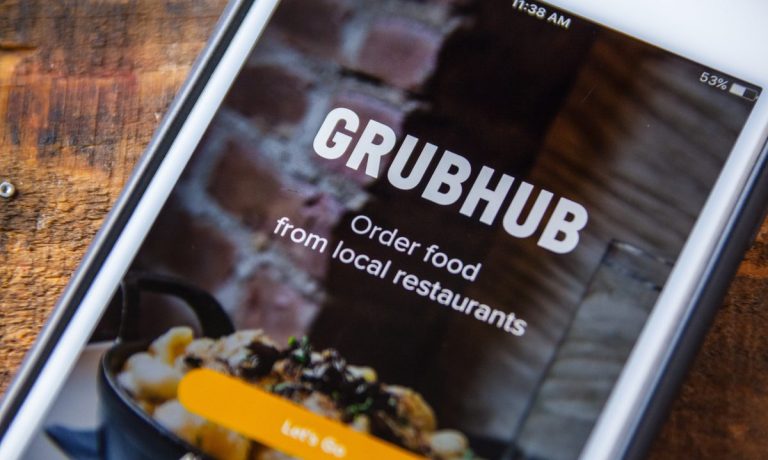Grubhub CEO Exits Amid Turmoil in On-Demand Delivery Industry

Grubhub’s chief executive is stepping down as economic pressures transform the landscape of on-demand delivery.
On Monday (March 13), the Chicago-based aggregator, a subsidiary of Just Eat Takeaway.com, announced that CEO Adam DeWitt is stepping down at the start of May and that Howard Migdal, CEO of Just Eat’s Canada-based aggregator SkipTheDishes, will take over the role. He will also gain the title of executive vice president of North America for the parent company.
“[Migdal] has a proven track record as a leader with a deep understanding of our business, and we are confident in his ability to lead and grow the business into the future,” Just Eat Takeaway.com CEO Jitse Groen said in a statement.
As backdrop to the news, as of Just Eat Takeaway.com’s earnings report earlier this month, the company continues to seek a buyer for Grubhub in part or in full, having faced challenges making the economics of the business work.
DeWitt, for his part, has been a c-suite executive at Grubhub since 2011.
“I am incredibly proud of what this team has accomplished and will forever value the relationships I’ve forged here,” DeWitt said in a statement. “Grubhub is in great hands with Howard and the Grubhub leadership team, and I’m excited to watch the company continue to thrive.”
The news adds yet another degree of turmoil to the on-demand delivery space, where matters have not been looking good in the past couple of months. For instance, last month, United Kingdom-based on-demand delivery service Deliveroo announced it was laying off 9% of its workforce. Company CEO and founder Will Shu stated that approximately 350 roles would be affected, though the aggregator expects the final tally to be closer to 300 once redeployments are accounted for.
Plus, in the past week alone, ultrafast grocery delivery firm Food Rocket shut down, and it was confirmed that convenience retail delivery service Gopuff has cut around 2% of its workforce.
The news comes as many consumers find that, in the face of mounting economic pressures, delivery is often a luxury that they cannot afford. The latest edition of PYMNTS’ Connected Dining study, “Connected Dining: Rising Costs Push Consumers Toward Pickup,” for which we surveyed a census-balanced panel of more than 2,100 U.S. consumers in January about their restaurant dining habits, revealed that nearly half of all consumers (48%) have been more likely to pick their restaurant orders up themselves rather than have them delivered because of inflation.
Indeed, consumers are being more conservative in their spending overall. Findings from the latest edition of PYMNTS’ Consumer Inflation Sentiment study, “Consumer Inflation Sentiment: The False Appeal of Deal-Chasing Consumers,” which draws from a survey of more than 2,100 U.S. consumers, reveal that three-quarters have cut back on nonessential retail purchases.
It seems these issues will only be exacerbated in the months ahead, as consumers’ economic anxieties persist and further affect their purchasing habits. PYMNTS’ December study “Consumer Inflation Sentiment: In It For The Long Haul” finds that consumers on average believe it will take until June 2024 before inflation returns to 2021 levels. Plus, about three-quarters of those surveyed are very or extremely worried about the U.S. economic situation.